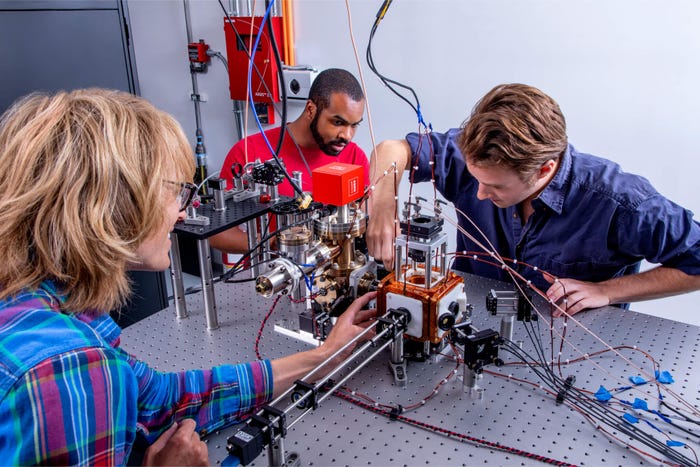
Connects decision-makers and solutions creators to what's next in quantum computing
Google Paves Way for Earlier Access to Useful Quantum ComputingGoogle Paves Way for Earlier Access to Useful Quantum Computing
New Willow quantum chip reduces errors better as more qubits are added

Google has released its latest quantum computing chip, Willow, which boasts error correction and performance that could make useful, large-scale quantum computers possible sooner than expected.
In tests, Willow performed a standard benchmark computation in less than five minutes that would take one of today’s fastest classical supercomputers 10 septillion (1025) years, more than the age of the Universe.
Willow has just 105 qubits compared with IBM’s latest quantum chip, Condor, which has 1,121. But Willow’s architecture promises to break the error correction barrier that troubles scaling up quantum – it reduces errors as more qubits are added.
This exponential reduction in errors is known as "below threshold" error correction, a milestone sought since 1995 that is considered a crucial step toward building practical, large-scale quantum computers.
Willow also improves other performance metrics, such as T1 times, which measure how long qubits can hold an excitation. Also known as longer coherence time, this property is essential for advancing quantum computing because it enhances the system's ability to maintain quantum states over time, improving reliability and scalability.
The next goal for Google is to demonstrate a “useful, beyond-classical” computation on Willow that has real-world applications. While previous experiments have focused on benchmarking against classical computers or simulating quantum systems, the aim is to tackle problems that are both beyond the capabilities of classical computers and relevant to practical use cases.
Google believes that quantum computing will be crucial for advancing AI as it could collect training data that is inaccessible to classical machines to train and optimize learning architectures and model systems where quantum effects are important.
This could help advance the development of new medicines, design more efficient batteries for electric cars and accelerate progress in fusion and other new energy alternatives in ways that aren't feasible on classical computers.
About the Author
You May Also Like






